This article was co-authored by The Verified Initiative of the United Nations and by wikiHow staff writer, Hannah Madden. Verified is an initiative of the United Nations, to provide content that cuts through the noise to deliver life-saving information, fact-based advice and stories from the best of humanity. Led by the UN Department for Global Communications, the initiative also invites the public to help counter the spread of COVID-19 misinformation by sharing UN-verified, science-based content with their communities through articles, videos, and associated media. The initiative is a collaboration with Purpose, one of the world’s leading social mobilization organizations, and supported by the IKEA Foundation and Luminate.
There are 7 references cited in this article, which can be found at the bottom of the page.
This article has been viewed 30,120 times.
With the constantly changing status of the COVID-19 vaccine, it can be hard to figure out which facts are real and which ones are made up. If you or your loved ones are thinking about getting the COVID-19 vaccine, you probably want to read up on the newest and most credible information to stay safe. We’ve compiled a list of websites that will always give you accurate, credible information on the COVID-19 vaccine, plus a few ways you can check out other online sources critically to make sure they’re legit.
Steps
Check the CDC website.
-
The Center for Disease Control is a reliable source of info for COVID-19. You can check the FAQs for general information on the vaccine, or you can search your specific age and risk group to know more. The CDC also provides a range of other websites and information sources you can look at to follow up and learn more.[1] X Trustworthy Source Centers for Disease Control and Prevention Main public health institute for the US, run by the Dept. of Health and Human Services Go to source
- The CDC is American-based, but they provide information for the global community.
- You can visit the CDC’s vaccine information page by clicking: https://www.cdc.gov/coronavirus/2019-ncov/vaccines/facts.html.
Look at the WHO’s website.
-
The World Health Organization is a credible source of information. They’re a global agency funded by the United Nations and they’ve been proven to provide credible, accurate info. On their website, you can find information about the companies making the vaccines as well as trials and tests the vaccines are going through.[2] X Trustworthy Source World Health Organization Health information and news provided by the World Health Organization Go to source
- To check out the WHO’s page on the COVID-19 vaccine, visit https://www.who.int/emergencies/diseases/novel-coronavirus-2019/covid-19-vaccines.
Get info from the NIH.
-
The National Institute of Health is a biomedical research facility. Although they’re based in the United States, they have been testing the COVID-19 vaccine and providing information for everyone around the globe. You can read about the vaccine trials and even participate to be in them by visiting the NIH website.[3] X Research source
- To read the FAQs on the COVID-19 vaccine, visit https://www.niaid.nih.gov/diseases-conditions/covid-19-vaccine-faq#general.
Find websites with “.edu” or “.gov” in the URL.
-
It's a good jumping-off point for finding credible information. These URLs mean that the information is from a university (.edu) or a governmental agency (.gov). While it’s not always 100% certain that .edu or .gov websites are credible, it is more likely. If the website ends in “.com” or “.org,” be a little wary of the information [4] X Trustworthy Source University of California San Francisco Health Center Research hospital associated with UCSF, a leading medical university, providing innovative patient care and public health resources Go to source
- The ending “.com” indicates that the website is owned by a for-profit company, so they may be biased.
- The ending “.org” indicates that the website is owned by a nonprofit company. While they may be providing accurate information, there’s no guarantee that it’s been reviewed by other members of the community, since nonprofits usually don’t have to comply with governmental standards.
Look at the date the information was posted.
-
If the information is old, it’s probably not accurate anymore. Try to find information that’s only 1 to 2 months old at the most. Since vaccine information changes almost daily, if the article is older than that, it might not be correct. You can usually find the publishing date on the very top or the very bottom of the webpage.[5] X Research source
- Most credible websites update their information as new data comes in.
Figure out who publishes the information.
-
You can usually find this in the “About Us” section on a website. If the organization publishing the info is science-based, it’s probably credible. If they don’t have any medical training or it’s ambiguous, the information might not be solid.[6] X Research source
- You can also search the “About Us” section to see if the organization is being paid to publish information. If they have sponsors, there’s a good chance they are getting money to spread disinformation.
- If the CDC, WHO, NIH, or Mayo Clinic publishes the sources, they’re most likely credible.
- If the publisher is a natural or holistic practitioner, someone who isn’t in the medical field, or a corporation, be wary of the information.
Check on who reviewed the information.
-
Scientific info should always be reviewed by someone in the field. If the article or data hasn’t been peer-reviewed, it might not be credible. You can usually find this info at the bottom of the article at the very end of the page.[7] X Trustworthy Source Centers for Disease Control and Prevention Main public health institute for the US, run by the Dept. of Health and Human Services Go to source
- It might say something like, “Peer-reviewed by Martha M. Hawkins, PhD,” or, “Reviewed by John Marshall, MD, on September 27th, 2020.”
Find the original source of the information.
-
If a fact is cited or quoted, head to the original article. Credible information will usually come from a scientific journal or a health organization. If you can’t find the original source or it doesn’t look legit, it’s probably not correct.[8] X Research source
- Most statistics and data should have sources at the bottom of the article or in a footnote next to the information itself. If the source isn’t listed, it’s probably not legitimate.
Look at raw data instead of third-party information.
-
Facts and figures can be misconstrued. If you’re reading something that references data, check it out for yourself before believing the article. You can usually find raw data in a scientific journal or article by checking the source at the bottom of the article.[9] X Trustworthy Source University of California San Francisco Health Center Research hospital associated with UCSF, a leading medical university, providing innovative patient care and public health resources Go to source
- For example, if a source says, “The data shows that the vaccines don’t contribute to herd immunity,” take a look at the data itself. The source may be pulling it out of context or misconstruing it to confuse its readers.
Don’t submit your personal information online.
-
If a website ever asks for your info, it’s probably not safe. Unless you’re absolutely positive that the website is credible, you shouldn’t submit your name, email address, or home address online. If you do decide to submit your info, read through the terms and conditions carefully before agreeing.[10] X Research source
- Never submit your social security number online unless it’s through a governmental agency.
Avoid websites with grammatical mistakes or misspellings.
-
This probably means the article hasn’t been reviewed critically. If you’re reading something and notice a lot of words are misspelled or the grammar isn’t great, the info probably isn’t credible. Most real sources go through an editing process, so they should be almost perfect.[11] X Trustworthy Source University of California San Francisco Health Center Research hospital associated with UCSF, a leading medical university, providing innovative patient care and public health resources Go to source
- Misspellings and grammatical errors can sometimes be translation errors. If you’re reading a source from another country and you think that’s the case, double-check the information with a known credible source, like the CDC or the WHO.
Watch out for sites with “miracle cures.”
-
Right now, scientists recommend getting the COVID-19 vaccine. Experts will never recommend any miracle cures, like essential oils or breathing treatments. If the source advises you to avoid the vaccine in favor of a home remedy, it’s probably inaccurate.[12] X Trustworthy Source University of California San Francisco Health Center Research hospital associated with UCSF, a leading medical university, providing innovative patient care and public health resources Go to source
- Some "miracle cures" can even be dangerous. Make sure the information you’re getting is accurate before you decide to test out a new product.[13] X Trustworthy Source US Food and Drug Administration U.S. government agency responsible for promoting public health Go to source
You Might Also Like
 How to Protect Yourself from Coronavirus COVID-19 (2021)
How to Protect Yourself from Coronavirus COVID-19 (2021)
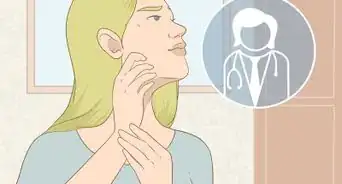
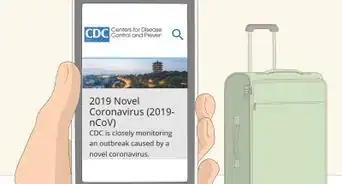 Effective Ways to Treat Coronavirus (COVID-19)
Effective Ways to Treat Coronavirus (COVID-19)
 Social Distancing and Making Music: How to Sing Together Online
Social Distancing and Making Music: How to Sing Together Online



 How to Recognize and Diagnose Coronavirus (COVID-19)
How to Recognize and Diagnose Coronavirus (COVID-19)
 How to Stop the Spread of Covid-19
How to Stop the Spread of Covid-19
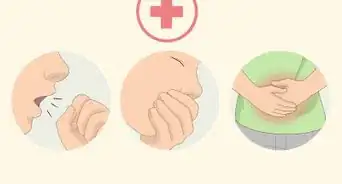 How to Stay Calm During a Coronavirus Outbreak
How to Stay Calm During a Coronavirus Outbreak
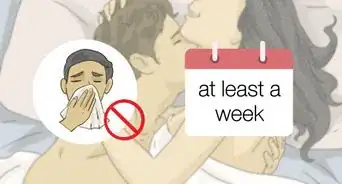
References
- ↑ https://www.cdc.gov/coronavirus/2019-ncov/vaccines/facts.html
- ↑ https://www.who.int/emergencies/diseases/novel-coronavirus-2019/covid-19-vaccines
- ↑ https://www.niaid.nih.gov/diseases-conditions/covid-19-vaccine-faq#general
- ↑ https://www.ucsfhealth.org/education/evaluating-health-information
- ↑ https://vaccineinformation.org/internet-immunization-info/
- ↑ https://vaccineinformation.org/internet-immunization-info/
- ↑ https://www.cdc.gov/vaccines/vac-gen/evalwebs.htm
- ↑ https://vaccineinformation.org/internet-immunization-info/
- ↑ https://www.ucsfhealth.org/education/evaluating-health-information
- ↑ https://vaccineinformation.org/internet-immunization-info/
- ↑ https://www.ucsfhealth.org/education/evaluating-health-information
- ↑ https://www.ucsfhealth.org/education/evaluating-health-information
- ↑ https://www.fda.gov/news-events/press-announcements/coronavirus-covid-19-update-fda-warns-seller-marketing-dangerous-chlorine-dioxide-products-claim
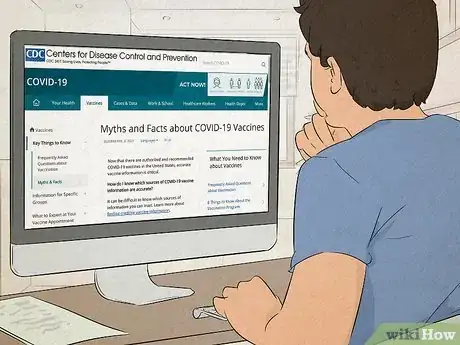
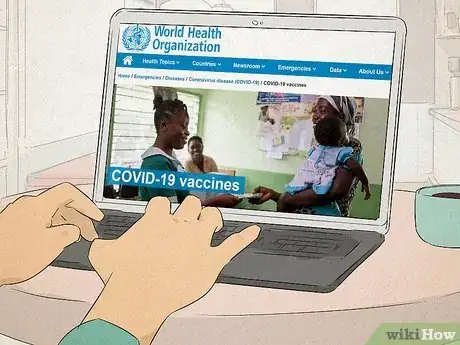
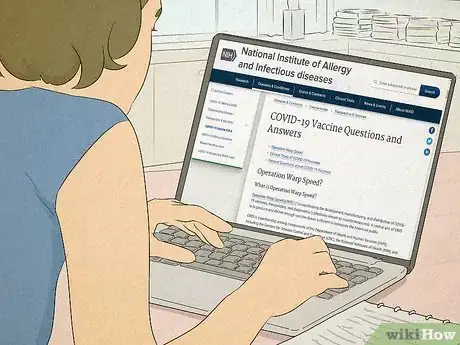

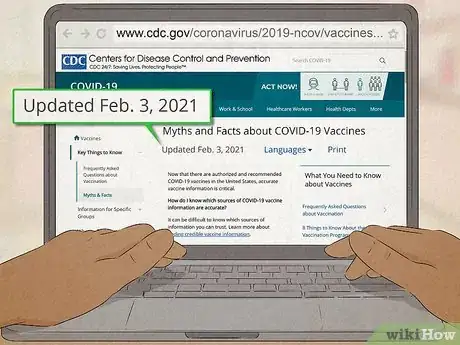
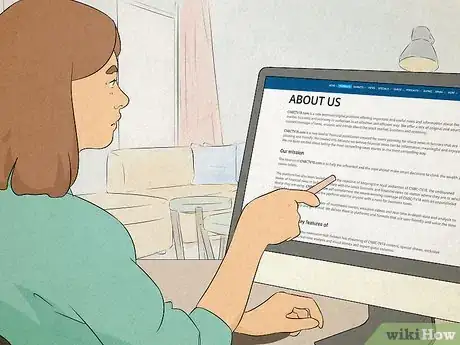

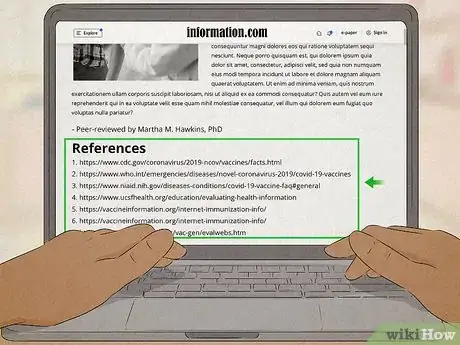

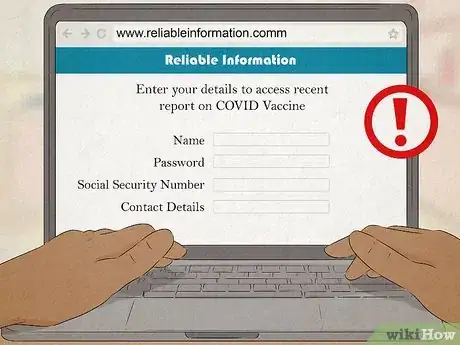
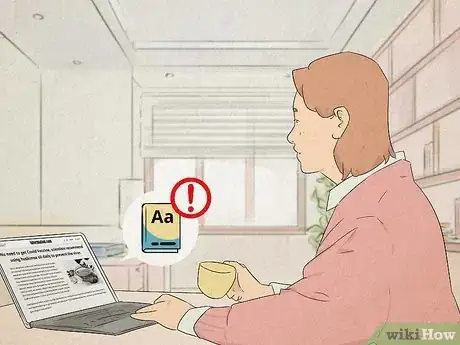
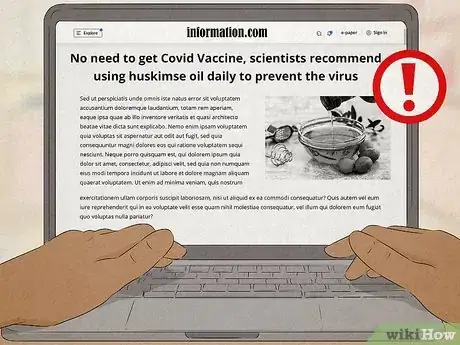









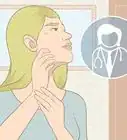
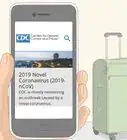



































Medical Disclaimer
The content of this article is not intended to be a substitute for professional medical advice, examination, diagnosis, or treatment. You should always contact your doctor or other qualified healthcare professional before starting, changing, or stopping any kind of health treatment.
Read More...